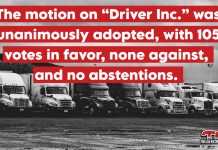In the trucking sector, dispatchers are often seen as the central hub, a vital link connecting the moving fleet to the essential revenue streams that keep the business flourishing. Traditionally viewed as tactical roles focused on monitoring and allocating loads, it’s increasingly necessary for dispatchers to evolve into strategic architects of profitability. To navigate the tight margins typical of the trucking industry, adopting a business-oriented approach is not just beneficial, it’s crucial.
Dispatchers should see themselves as general managers of a fleet, controlling significant profit levers. This perspective involves a thorough analysis of revenue and cost data, identifying underperforming assets, and demanding real-time visibility into key performance indicators such as cost per loaded mile or average revenue per tractor per week.
Drill down into the details:
- Are some customers paying higher rates for the same routes?
- How do these rates vary for direct loads versus brokered loads?
- Are certain shippers/receivers more reliable, saving you and the driver time?
- How do maintenance and fuel costs vary by truck?
This level of scrutiny can reveal rich negotiation opportunities.
In trucking, prices are constantly fluctuating, influenced by varying capacity dynamics across regions and sectors. Even if compensation isn’t directly tied to these metrics, having an intimate understanding of prevailing rates by lane is crucial. This knowledge enables dispatchers to spot profit-maximizing opportunities and prioritize routes where customers are willing to pay premiums, as well as to strategically keep trucks filled, balancing discounted rates with covered fixed costs.
Modern trucking dispatch software solutions, like Truckbase, especially when powered by AI, become a major unlock for automating data entry and surfacing data to make better decisions. These systems can handle repetitive tasks such as extracting details from Bills of Lading and rate confirmations, or establishing EDI links with brokers for seamless document transfers. By automating these processes, dispatchers can refocus their energies on customer relationships and growth initiatives that will have a larger impact on revenue (and more importantly, on profits!).
Cultivating a culture of curiosity and metric-based decision-making is crucial. Encourage your team to identify what matters to your customers. Some shippers value services, reliability, and consistency more. Some loads require special knowledge for secure transport. Some brokers are always shopping for the lowest rate — work with these brokers sparingly and know they’re only there for backhauls when you’re in a bind.
Recognize what your goals are and which types of customers, freight, and rates will help you achieve them. Developing this muscle and encouraging proactive thinking yields compound returns compared to merely following instructions.
Dispatchers, traditionally the custodians of on-time deliveries, customer satisfaction, and driver experience, are now poised to be key players in strategic decision-making. By intertwining a CEO mindset and a data-driven approach with their operational responsibilities, dispatchers can elevate their role, contributing significantly to the financial success of their operation. In doing so, they position themselves as invaluable assets and potential leaders within the industry. Adopting this multifaceted approach can propel a trucking operation’s earning potential to new heights, making the dispatcher’s role not just operational but critically commercial.
By investing time and energy to increase one’s value within a company, one not only positions oneself to seize new opportunities and demonstrate importance but also increases the chances of securing better compensation, rewarding commitment and contribution to the success of the business.
















